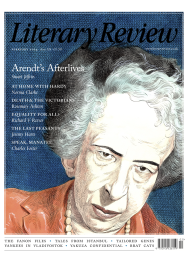Gillian Tindall
Pilgrims, Poets & Prostitutes
Liberty over London Bridge: A History of the People of Southwark
By Margaret Willes
Yale University Press 304pp £20
First a small gripe – one for which I do not blame the author of this book. She has been caught up in the current publishing tendency to baste the jackets of non-fiction books with praise from other writers. Some of those quoted here are genuinely knowledgeable on the book’s chosen subject; others less so. Is Southwark really, as one author claims, a little-known territory? On the contrary, thanks to the blessed revival of Borough Market, the popularity of the Clink Prison Museum (notionally commemorating the medieval lock-up attached to the Bishop of Winchester’s palace in Southwark – ruins on display) and the even more crowded Jubilee Walkway along Bankside, Southwark today shares with Venice the dubious honour of being blighted by its own renown.
This said, there is much in this densely packed book, both for those exploring the south side of the Thames for the first time and for those already aware of its long and busy past. Willes is right that, during the many centuries in which London Bridge was the only point of access to the City of London for wheeled traffic, what is now Borough High Street had major significance. It was not just the route from the capital to Dover and the other south-coast ports; it was also the starting point for those heading off to foreign wars and on pilgrimages, two ventures often combined. Chapter four, ‘On the Road to Canterbury’, is one of the best sections of the book, giving a lively summary of the various roles played by Southwark’s famous public houses at different periods, through to their 18th- and 19th-century heyday as coaching inns, which the arrival of the railways brought to a rather rapid end.
I am also personally grateful to the author for presenting a clear outline of the life of the 14th-century poet John Gower, who had a substantial house in Southwark and was a key figure of power and influence there in that tumultuous time, but whom I carefully avoided as a

Sign Up to our newsletter
Receive free articles, highlights from the archive, news, details of prizes, and much more.@Lit_Review
Follow Literary Review on Twitter
Twitter Feed
Under its longest-serving editor, Graydon Carter, Vanity Fair was that rare thing – a New York society magazine that published serious journalism.
@PeterPeteryork looks at what Carter got right.
Peter York - Deluxe Editions
Peter York: Deluxe Editions - When the Going Was Good: An Editor’s Adventures During the Last Golden Age of Magazines by Graydon Carter
literaryreview.co.uk
Henry James returned to America in 1904 with three objectives: to see his brother William, to deliver a series of lectures on Balzac, and to gather material for a pair of books about modern America.
Peter Rose follows James out west.
Peter Rose - The Restless Analyst
Peter Rose: The Restless Analyst - Henry James Comes Home: Rediscovering America in the Gilded Age by Peter Brooks...
literaryreview.co.uk
Vladimir Putin served his apprenticeship in the KGB toward the end of the Cold War, a period during which Western societies were infiltrated by so-called 'illegals'.
Piers Brendon examines how the culture of Soviet spycraft shaped his thinking.
Piers Brendon - Tinker, Tailor, Sleeper, Troll
Piers Brendon: Tinker, Tailor, Sleeper, Troll - The Illegals: Russia’s Most Audacious Spies and the Plot to Infiltrate the West by Shaun Walker
literaryreview.co.uk